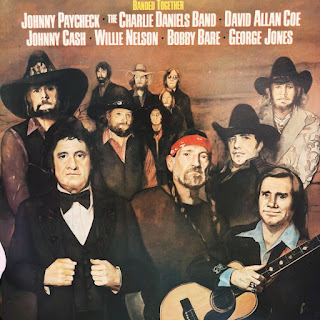A Musical Trip--Reggae (Jamaica)
Historical and Cultural Roots:
Afro-Caribbean and African influences: Reggae music is deeply rooted in African and Caribbean music traditions. Its unique sound is derived from its rhythmic patterns, syncopation, and call-and-response elements, which are influenced by African and Afro-Caribbean music.
Rastafarianism: Rastafarianism is one of the major influences on reggae's themes and lyrics. In reggae lyrics, themes such as freedom, spirituality, and social justice are often echoed by Rastafarian beliefs that are based on Marcus Garvey's teachings and a spiritual connection to Ethiopia.
Musical Characteristics:
Rhythmic Patterns: Reggae is characterized by its offbeat rhythm, which is often referred to as the "one-drop." This rhythmic pattern gives the music a laid-back, hypnotic feel.
Skank Guitar: The skank guitar, which plays offbeat, is a key component of reggae music. The guitar produces the rhythmic "chopping" sound that is so characteristic of the genre.
Bass Line: Reggae bass lines provide a solid foundation for the music. Often following the guitar's rhythm, these bass lines play a crucial role in establishing the groove.
Percussion and Horns: The bongo and congas are frequently used in reggae to add depth and texture to the music, while adding to its rich and vibrant sound.
Production Techniques:
As a result of reggae, the genre known as "dub" was developed, which is a genre of remixing and manipulating tracks to emphasize certain elements, including bass lines and reverbs. Reggae music's distinctive sound has been influenced by this experimentation with studio techniques.
International Influence:
As a music genre, reggae resonates with audiences throughout the world. Its sound and messages have influenced hip-hop, punk, and electronic music as well. Reggae has become an international symbol of unity and solidarity, and its message has been adopted by many social movements. It has been used to promote positive change and social justice in many countries.
Works Cited
Lora, Andrea. “The Rastafarian Movement and Reggae Music.” Music and Research, https://www.musicandresearch.com/en/research/the-rastafarian-movement-and-reggae-music/. Accessed 5 November 2023.
“Reggae.” Wikipedia, https://en.wikipedia.org/wiki/Reggae. Accessed 5 November 2023.

I couldn't agree more with your love for reggae music! It's a genre with a rich history and a sound that's impossible to resist.
ReplyDeleteYou've beautifully highlighted the historical and cultural roots of reggae, and it's fascinating to see how it draws from Afro-Caribbean and African influences. The rhythmic patterns and call-and-response elements are what give reggae its infectious groove. And, of course, the result of Rastafarianism, with its focus on freedom, spirituality, and social justice, adds a profound depth to the genre's lyrics.
Bob Marley's contribution to the global popularity of reggae cannot be overstated. His commitment to Rastafarianism and refusal to align with political ideologies showcased the genre's independence and authenticity. "I'm neither Marxist nor capitalist. I'm Rasta." - that quote says it all!
You've also nailed the musical characteristics that make reggae so distinctive. The one-drop rhythm, the skank guitar, the solid bass lines, and the use of percussion and horns all combine to create that hypnotic, soothing sound that instantly transports you to Jamaica.
The mention of the "dub" genre and its influence on reggae's unique sound is spot on. Dub's experimentation with studio techniques has had a lasting impact on how reggae is produced and perceived.
Reggae's international influence is undeniable, and it's incredible how its sound and messages have reverberated across the globe, influencing other genres like hip-hop, punk, and electronic music. It's more than just music; it symbolizes unity, solidarity, and social change.
In conclusion, reggae music is one of the greatest genres in music history. Its distinctive sound, cultural roots, historical significance, and powerful messages make it a timeless and influential genre that continues to captivate audiences worldwide. One love, my fellow reggae lover! 🎶✌️
Hi Kimberly,
ReplyDeleteThank you for sharing this insightful exploration of reggae music! Your post provides a comprehensive overview of the genre's historical, cultural, and musical elements. It's evident that reggae's roots in Afro-Caribbean and African influences, as well as its ties to Rastafarianism, have played a significant role in shaping its distinctive sound and lyrical themes.
The breakdown of reggae's musical characteristics, from the rhythmic patterns to the skank guitar and bass lines, helps us understand why it's so unique and hypnotic. It's fascinating how reggae's production techniques have also led to the development of the "dub" genre, highlighting the genre's constant evolution.
I completely agree with your sentiment that reggae is one of the greatest music genres in history. Its soothing rhythms and powerful messages make it a timeless and influential genre that transcends borders and continues to impact diverse music styles. Thanks for sharing this insightful piece of music history!